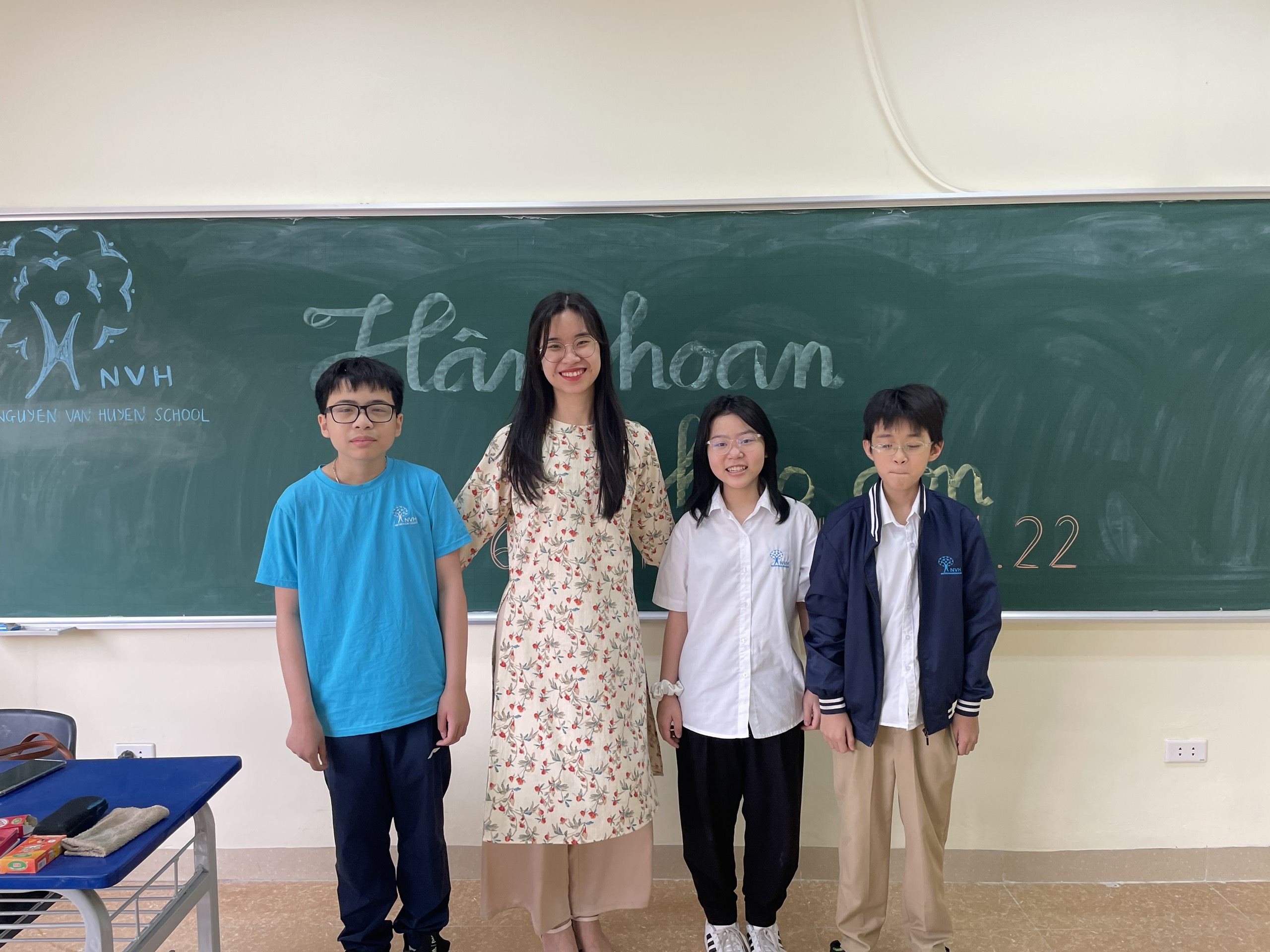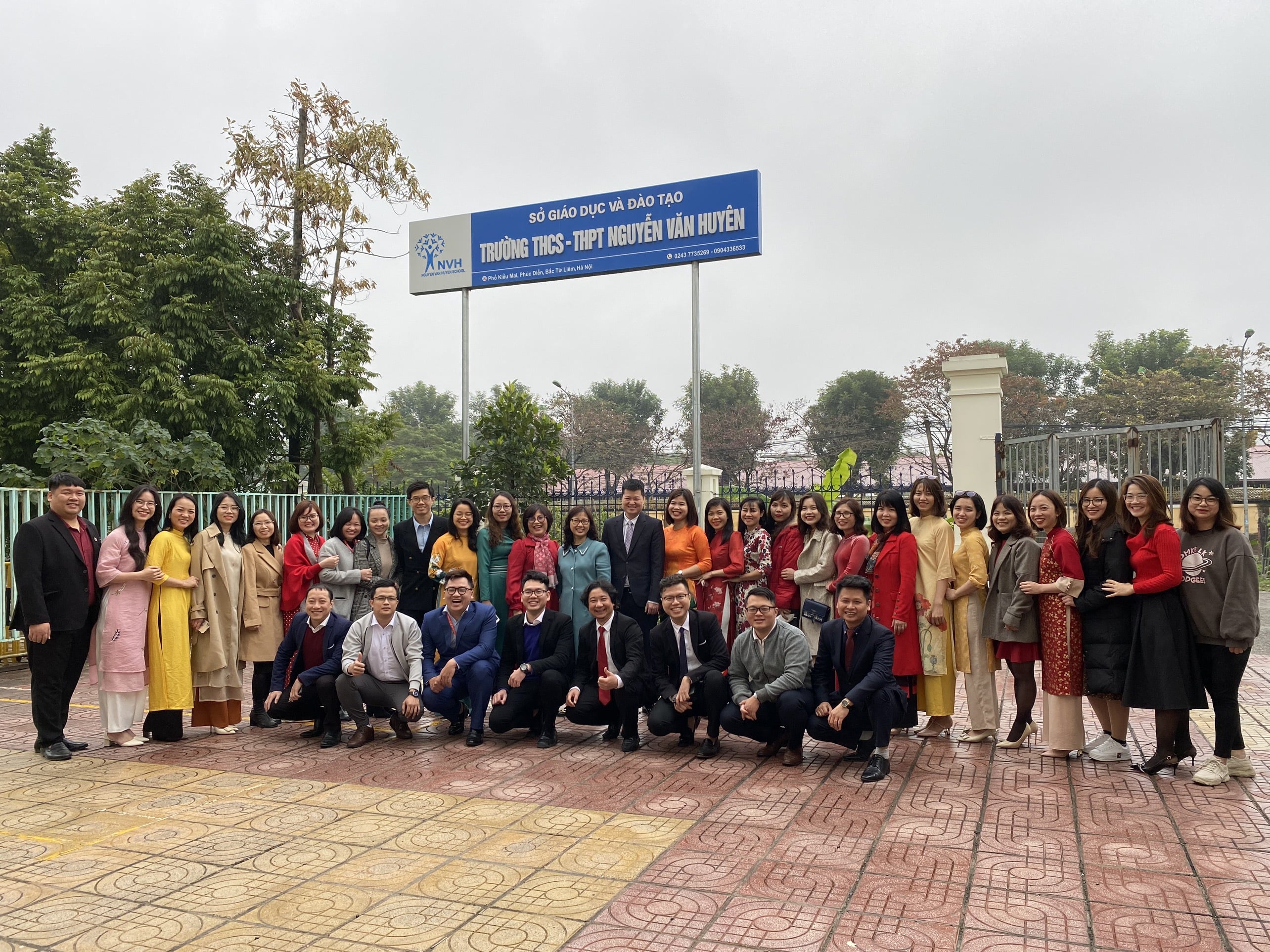Foreigners, especially in countries that are not Russia or Eastern Europe, are also very willing to acknowledge this virtue of our people. The international awards our students have won can underpin this.
About the studiousness of Vietnamese people in the past and present Cao Xuan Hao Vietnamese, Van Viet, Vietnamese - Young Publishing House Vietnamese people are often very proud of their studiousness, which seems to have become a long-standing tradition of the nation. Foreigners, especially in countries that are not Russia or Eastern Europe, are also very willing to acknowledge this virtue of our people. The international awards our students have won can underpin this. In Russia and Eastern Europe, it's a little different. But this we will learn later. So where does that studious virtue come from? And if so, how did that age-old tradition arise, and is it still preserved and continued today? That is the issue that this article wants to pose for the conference attendees to consider and discuss. "Study" is a concept that can be considered as a part, a detail, an expression of human's natural thirst for knowledge. Other animals do not have that desire. Reaching for their self-improvement to better adapt to life circumstances is an instinct, not a will. Man is conscious of his self-improvement as well as the improvement of his living conditions. To do that, it must constantly learn, learn to better understand the world around it, and then itself. And after several million years of evolution, when mankind began to create institutions and organizations to transmit and develop the accumulated knowledge, the concept of "learning" was born, along with writing (literary) and literacy teachers.
First of all, learning is learning writing. I don't know if ancient Vietnamese (or Viet-Muong) had any words to denote the concept of "learning". But today we only know how to use learning words which are Chinese words. Although we follow the holy book (of China) that says that Tien studied literature, but the first "study" is learning literature. There are new texts and books. There are new books that record the teachings of the masters into knowledge that is fixed in texts that learners must memorize. It seems that the biggest fear of the ancients was the loss of documents. For if it were lost, basic knowledge would be lost, and the consensus of knowledge necessary for an organized society would be lost. Therefore, learning must first be memorized. Belonging means "cooked", that is, to be digested into one's own (by the way, many teachers today take memorization very lightly, confusing it with "rote learning"). I remember when I was a child studying English with an English monk, during which he made us memorize more than 100 English, Scottish and Irish folk songs (with both lyrics and music), and thanks to that, we still remember what we learned about this not-so-easy language. Only by rote can you remember "as in" the writing style, the word usage of exemplary articles, so that when speaking, when writing, you can immediately pop out almost instinctively, innocently, like your own. Memorizing does not need to be bright. It is the most accurate measure of intelligence. A person who is not bright has to spend twice as much effort, sometimes ten times as much, for a bright person to memorize. And years of hard work to memorize will train the unintelligent to become bright. I do not idealize the teaching of the old men. Nor do I praise the exam system of previous dynasties. Those are events that are not bright, the product of an old and outdated education. But it was that education that forged the studious virtue of our forefathers. In the past, our forefathers did not study because they were studious. They learn because of the will to do mandarin. They have no other way to escape the miserable condition of the poor. Mothers and wives who starve themselves of hunger and thirst to feed their husbands and raise their children to study and succeed. If they don't pass poinsettia, they will also pass the poor man, and he will appoint a master. The old man, he was only allowed to "honor and pay homage to the ancestors", but a gentleman can at least raise his face when he hears his wife say: No, why not pass the baccalaureate? And respected by the whole village. A man who failed to pass the exam many times, had to give up his academic ambition at home and knock on the head young, still being respected by the villagers as a teacher of their children, the hope for the family's future. surname. And they also know how to distinguish talent from luck: Learn talent and poetry.
But talent and will are still solid foundations of a future worthy of people's dreams, and still worthy of respect because those are the true values of human beings, because humans are different from animals. , which thirsts for knowledge, and knowledge has long been regarded by mankind as the highest value, because it is the most important factor that can lead them to good results in the arduous struggle with nature to build a happy life. Thus, studiousness is not an inherent virtue of the Vietnamese, but since a certain era it, due to the very selfish demands of the ruling class, has become a tradition, for it is identified by society as a whole with man's best hopes. Even during the French colonial period, that tradition was still maintained, despite the enslavement intentions of colonialism. Our teachers all know how to take advantage of the short-sighted requirements of the colonial regime and, on the one hand, based on the nation's studious tradition, on the other hand, upholding the humanitarian and democratic elements of French culture. , trying to expand people's intellectual to the maximum in the direction of modernization and democratization. Since the success of the August Revolution, great prospects have opened up for our people's education, and the tradition of studiousness has enjoyed unprecedented favorable conditions to be promoted to the highest peaks. height that no one dared to imagine before. The doors of the school are open to all, and of course the schools are quickly transitioning to a new education - the education of an independent people. With the victory of the resistance war against the French in 1954, when our army and people liberated the capital Hanoi and other cultural centers of the country, universities of science began to operate officially with a large scale. unprecedented during the French colonial period. This is when the cause of education raises very basic questions about the direction as well as the content and quality of the curriculum. One of the fundamental problems raised is the class character in the education of the new regime. Of course, there can be no egalitarianism in education. Granted, every future citizen has the right to
equal rights and duties in education. But the working classes have suffered so much in the past, (due to economic conditions - too poor to send their children to school - of course - not because of the class composition) that the state cannot do without a preferential policies to compensate them for the disadvantages they and their children have suffered in the past. It is a very fair policy that surely no one opposes. But here we see a very serious misunderstanding. This priority should be to focus on fostering children of workers and agronomists who are good at studying, better than children of the "upper" classes or at least as good as they are, but many people have the notion that they must find how to create an inequality in the way the learning outcomes of students and students (HS & SV) are assessed, especially through exams. Students and students of workers and farmers and children of middle- and senior-level cadres who have meritorious services to the regime, or have close relationships with middle-high-ranking cadres, are entitled to additional points in their academic records and in exam results. As a result, some students & students passed the exam even though they did not meet the minimum requirements and therefore some better students & students were eliminated. Thus, the content of this misunderstanding is in the conception of the purpose of education: according to this concept, to be educated is not to be equipped with enough knowledge to serve the country, but to have a degree - is conceived as a quality that gives a certain social status to learners, a portion of sticky rice is rewarded to those who are lucky enough to be classified into a certain class, regardless of ability. Service capacity is called "specialist", while class composition is considered a standard of "red". In fact, "red" is primary, "specialized" is secondary, although in theory the two sides are considered equally necessary. With that concept, the "priority" students and students who do not have enough professional knowledge are awarded diplomas and put on the payroll or are selected to study abroad - moreover, because of the advantages of their resumes. They were quickly put on the payroll, promoted and soon became leaders. Students and "priority" students when studying abroad are sent very carefully and thanks to the brotherly friendship between socialist countries, they are more than able to pass a doctorate or associate degree, even those who do not. never wrote a single line in the thesis they defended. With the commercial activities they conduct around the "Dom 5" base on Ulyanova Street (it's the dormitory of foreign researchers and their warehouse) they can afford to spend several thousand rubles. to hire other students to write their dissertations for them. Besides, in Eastern European countries, there is no shortage of people who specialize in writing assistant doctorate dissertations. I know a couple of Russian Jewish doctors who make a living by writing dissertations, mainly for African and Vietnamese doctoral students. It is worth noting that when sending these international students, the responsible officials know that these people are thanks to their umbrellas, not because of their academic ability, but to graduate students. When looking at the staff of their agency, they see themselves surrounded by talented scientists and take pride in their strategy of using talents.
However, there are also many more sober people who know the dignity of new PhDs but use this team as a team dedicated to themselves out of gratitude for umbrellas. is because of the spirit of discipline towards the leadership. There was a time when many professors objected to this kind of unfair preference, which was very harmful to the agrarian students themselves. They demanded that the actual scores of the candidates be published and volunteered to provide an extra year or two of tutoring for the agricultural students who did not reach the required level before giving them their diplomas. These professors, including Minister Professor Ta Quang Buu, cannot accept the dishonesty of officially recognizing these students as qualified to serve when they can only damage the works, killing patients, harming their students. But having only implemented their intentions a few times, they were immediately suppressed because the publication of this point and the policy of objective assessment of students' academic results was considered a "dagger in the back of the working class". shallow". That is just the beginning of the rapid deterioration of education and training. The next steps are no less spectacular, especially in the social sciences, especially literature and languages, which are considered as completely unnecessary "specialists", just "red", needed "ideological" stance, which people who have a good attitude can do even if they don't study at any time. But the main topic of this article is only indirectly related to educational work in schools. A poor education will not do much harm to the desire to learn if the educated and good students are respected by society or at least have a bright future upon graduation. By the way, the most certain future of university graduates is . . . unemployed (unless there are special social ties). Luckily, there are only English faculty students
is not to worry about this prospect, because it is easy to get a job in foreign companies. Even at the time when the stupid policy of the French colonialists still reigned, the future of school-educated people was much brighter: even with only a "diplom" degree, a person who graduated from elementary school had already graduated from elementary school. have a stable position in society and a salary enough to support his wife and children and be filial to his parents. Meanwhile, a "bachelor" today may not be able to find a job without switching to a different profession than the one he studied, such as tutoring, cyclo, modeling or dancing. In a short memoir story, a high school teacher recounts the words of a student who argued with him when he scolded him a bit harshly for not taking his studies seriously: - Teacher, I took my studies seriously. Even if it's only as good as the teacher, it's the same. But you just try to look at your body and see: is your salary enough to buy a bicycle to replace the one you still ride? When he is old enough to understand more or less about life, every student learns an important lesson: if he studies well, only teachers and friends praise him, not outside the world. The school was narrow, no one took me seriously, and with the annual salary I received after graduation, it was still late at night to make myself a daily drink from a business director. only study until the end of primary school. If you don't have a Honda to pick up your girlfriend, what else can you say about computers and professional books? Maybe that is the way of thinking of ordinary young people, without much ideal. Unfortunately, that kind of "ordinary" people in every society make up the majority, and no one can escape the influence of the mass media loudly advertising a "stylish" lifestyle. ", that is for the habit of chasing after those who have had enough money through trading or embezzlement to join the class of "sophisticated" consumers called "gods" in the market economy mechanism, which even Even if they can join, they can't keep up with the "gods, high-class people who spend a few million a day as they still see among their old friends who dropped out of school to switch to business. However, The old school-loving tradition is still alive today, and it's still alive in some people from well-to-do families: those with several generations of teachers, doctors, engineers, or nurses. artist, that is, working as a mind worker, who still believes in the value of education even though the facts witnessed every day completely negate it. Some people do not have a tradition of intellectual family, but thanks to the education of schools, books and the influence of excellent teachers on their best students. However, it is enduring the very strong erosion of real life, making it disappear so surely and quickly, that if anyone now talks about the studiousness of the Vietnamese people, it will not go away. feel a little embarrassed: is it true that "Vietnamese have a tradition of studiousness", and if so, does it still exist now? As someone who has worked for more than fifty years on the staff of high school and college teachers, and now continues to teach at many universities despite retirement, I would like to present a small number of the thousands of expressions. There is no denying the fact of this disappearance, especially in the field of Vietnamese linguistics, in which I am one of the longest-time participants (since t956 was the first year of teaching Vietnamese phonetics and grammar in Vietnam). University).
First of all, let's talk about university professors, in which there are many people involved as editors, editors or advisors on the theoretical basis, in the preparation of textbooks at all levels, especially textbooks. Vietnamese high school. These people are role models for the students of the philology department (who will later be high school textbook authors, high school teachers or university lecturers). In the early years, most of these professors (who had not yet completed a year of university studies in linguistics) were still struggling to read a few dozen pages of linguistics manuals in French or English, or ask friends to translate for them. , and then years later, when there is a lesson plan or a textbook is prepared, I absolutely don't read any more, and especially after I have a degree, I don't see the need to read anything more, except When I heard rumors of new theories, I thought I could forget all the old knowledge, just ask or hire someone to translate for a few dozen "cabinet" sentences in the books I accidentally found, and start writing dozens of books. thickly diluted dozens of those sentences into chapters, trying to write as many pages as possible to increase royalties. About the studiousness of Vietnamese people in the past and present Cao Xuan Hao Vietnamese, Van Viet, Vietnamese - Young Vietnamese Publishing House South Vietnam is often very proud of its studiousness, which seems to have become a long-standing tradition of the nation. Foreigners, especially in countries other than Russia or Eastern Europe, are also very willing to acknowledge this virtue of the people. The international awards our students have won can underpin this. In Russia and Eastern Europe, it's a little different. But this we will learn later. So where does that studious virtue come from? And if so, how did that age-old tradition arise, and is it still preserved and continued today? That is the issue that this article wants to pose for the conference attendees to consider and discuss. "Study" is a concept that can be considered as a part, a detail, an expression of human's natural thirst for knowledge. Other animals do not have that desire. Reaching for their self-improvement to better adapt to life circumstances is an instinct, not a will. Man is conscious of his self-improvement as well as the improvement of his living conditions. To do that, it must constantly learn, learn to better understand the world around it, and then itself. And after several million years of evolution, when mankind began to create institutions and organizations to transmit and develop the accumulated knowledge, the concept of "learning" was born, along with writing (literary) and literacy teachers. First of all, learning is learning writing. I don't know if ancient Vietnamese (or Viet-Muong) had any words to denote the concept of "learning". But today we only know how to use learning words which are Chinese words. Although we follow the holy book (of China) that says that Tien studied literature, but the first "study" is learning literature. There are new texts and books. There are new books that record the teachings of the masters into knowledge that is fixed in texts that learners must memorize. It seems that the biggest fear of the ancients was the loss of documents. For if it were lost, basic knowledge would be lost, and the consensus of knowledge necessary for an organized society would be lost. Therefore, learning must first be memorized. Belonging means "cooked", that is, to be digested into one's own (by the way, many teachers today take memorization very lightly, confusing it with "rote learning"). I remember when I was a child studying English with an English monk, during which he made us memorize more than 100 English, Scottish and Irish folk songs (with both lyrics and music), and thanks to that, we still remember what we learned about this not-so-easy language. Only by rote can you remember "as in" the writing style, the word usage of exemplary articles, so that when speaking, when writing, you can immediately pop out almost instinctively, innocently, like your own. Memorizing does not need to be bright. It is the most accurate measure of intelligence. A person who is not bright has to spend twice as much effort, sometimes ten times as much, for a bright person to memorize. And years of hard work to memorize will train the unintelligent to become bright. I do not idealize the teaching of the old men. Nor do I praise the exam system of previous dynasties. Those are events that are not bright, the product of an old and outdated education. But it was that education that forged the studious virtue of our forefathers. In the past, our forefathers did not study because they were studious. They learn because of the will to do mandarin. They have no other way to escape the miserable condition of the poor. Mothers and wives who starve themselves of hunger and thirst to feed their husbands and raise their children to study and succeed. If they don't pass poinsettia, they will also pass the poor man, and he will appoint a master. The old man, he was only allowed to "honor and pay homage to the ancestors", but a gentleman can at least raise his face when he hears his wife say: No, why not pass the baccalaureate? And respected by the whole village. A man who failed to pass the exam many times, had to give up his academic ambition at home and knock on the head young, still being respected by the villagers as a teacher of their children, the hope for the family's future. surname. And they also know how to distinguish talent from luck: Learn talent and poetry. But talent and will are still solid foundations of a future worthy of people's dreams, and still worthy of respect because those are the true values of human beings, because humans are different from animals. , which thirsts for knowledge, and knowledge has long been regarded by mankind as the highest value, because it is the most important factor that can lead them to good results in the arduous struggle with nature to build a happy life. Thus, studiousness is not an inherent virtue of the Vietnamese, but since a certain era it, due to the very selfish demands of the ruling class, has become a tradition, for it is identified by society as a whole with man's best hopes. Even during the French colonial period, that tradition was still maintained, despite the enslavement intentions of colonialism. Our teachers all know how to take advantage of the short-sighted requirements of the colonial regime and, on the one hand, rely on the studious tradition of the people. On the one hand, upholding the humanitarian and democratic elements of French culture, trying to expand the people's intellectual level to the maximum in the direction of modernization and democratization. Since the success of the August Revolution, great prospects have opened up for our people's education, and the tradition of studiousness has enjoyed unprecedented favorable conditions to be promoted to the highest peaks. height that no one dared to imagine before. The doors of the school are open to all, and of course the schools are quickly transitioning to a new education - the education of an independent people. With the victory of the resistance war against the French in 1954, when our army and people liberated the capital Hanoi and other cultural centers of the country, universities of science began to operate officially with a large scale. unprecedented during the French colonial period. This is when the cause of education raises very basic questions about the direction as well as the content and quality of the curriculum. One of the fundamental problems raised is the class character in the education of the new regime. Of course, there can be no egalitarianism in education. Granted, all future citizens have equal rights and duties in education. But the working classes have suffered so much in the past, (due to economic conditions - too poor to send their children to school - of course - not because of the class composition) that the state cannot do without a preferential policies to compensate them for the disadvantages they and their children have suffered in the past. It is a very fair policy that surely no one opposes. But here we see a very serious misunderstanding. This priority should be to focus on fostering children of workers and agronomists who are good at studying, better than children of the "upper" classes or at least as good as they are, but many people have the notion that they must find how to create an inequality in the way the learning outcomes of students and students (HS & SV) are assessed, especially through exams. Students and students of workers and farmers and children of middle- and senior-level cadres who have meritorious services to the regime, or have close relationships with middle-high-ranking cadres, are entitled to additional points in their academic records and in exam results. As a result, some students & students passed the exam even though they did not meet the minimum requirements and therefore some better students & students were eliminated. Thus, the content of this misunderstanding is in the conception of the purpose of education: according to this concept, to be educated is not to be equipped with enough knowledge to serve the country, but to have a degree - is conceived as a quality that gives a certain social status to learners, a portion of sticky rice is rewarded to those who are lucky enough to be classified into a certain class, regardless of ability. Service capacity is called "specialist", while class composition is considered a standard of "red". In fact, "red" is primary, "specialized" is secondary, although in theory the two sides are considered equally necessary. With that concept, the "priority" students and students who do not have enough professional knowledge are awarded diplomas and put on the payroll or are selected to study abroad - moreover, because of the advantages of their resumes. They were quickly put on the payroll, promoted and soon became leaders. Students and "priority" students when studying abroad are sent very carefully and thanks to the brotherly friendship between socialist countries, they are more than able to pass a doctorate or associate degree, even those who do not. never wrote a single line in the thesis they defended. With the commercial activities they conduct around the "Dom 5" base on Ulyanova Street (it's the dormitory of foreign researchers and their warehouse) they can afford to spend several thousand rubles. to hire other students to write their dissertations for them. Besides, in Eastern European countries, there is no shortage of people who specialize in writing assistant doctorate dissertations. I know a couple of Russian Jewish doctors who make a living by writing dissertations, mainly for African and Vietnamese doctoral students. It is worth noting that when sending these international students, the responsible officials know that these people are thanks to their umbrellas, not because of their academic ability, but to graduate students. When looking at the staff of their agency, they see themselves surrounded by talented scientists and take pride in their strategy of using talents. However, there are also many more sober people who know the dignity of new PhDs but use this team as a team dedicated to themselves out of gratitude for umbrellas. is because of the spirit of discipline towards the leadership. There was a time when many professors objected to this kind of unfair preference, which was very harmful to the agrarian students themselves. They demanded that the actual scores of the candidates be published and volunteered to provide an extra year or two of tutoring for the agricultural students who did not reach the required level before giving them their diplomas. These professors, including Minister Professor Ta Quang Buu, cannot accept the dishonesty of officially recognizing these students as having graduated. enough to serve when they can only damage buildings, kill patients, harm their students. But having only implemented their intentions a few times, they were immediately suppressed because the publication of this point and the policy of objective assessment of students' academic results was considered a "dagger in the back of the working class". shallow". That is just the beginning of the rapid deterioration of education and training. The next steps are no less spectacular, especially in the social sciences, especially literature and languages, which are considered as completely unnecessary "specialists", just "red", needed "ideological" stance, which people who have a good attitude can do even if they don't study at any time. But the main topic of this article is only indirectly related to educational work in schools. A poor education will not do much harm to the desire to learn if the educated and good students are respected by society or at least have a bright future upon graduation. By the way, the most certain future of university graduates is . . . unemployed (unless there are special social ties). Fortunately, only English faculty students do not have to worry about this prospect, because it is easy to get a job at foreign firms. Even at the time when the stupid policy of the French colonialists still reigned, the future of school-educated people was much brighter: even with only a "diploma" degree, a person who graduated from elementary school had already graduated from elementary school. have a stable position in society and a salary enough to support his wife and children and be filial to his parents. Meanwhile, a "bachelor" today may not be able to find a job without switching to a different profession than the one he studied, such as tutoring, cyclo, modeling or dancing. In a short memoir story, a high school teacher recounts the words of a student who argued with him when he scolded him a bit harshly for not taking his studies seriously: - Teacher, I took my studies seriously. Even if it's only as good as the teacher, it's the same. But you just try to look at your body and see: is your salary enough to buy a bicycle to replace the one you still ride? When he is old enough to understand more or less about life, every student learns an important lesson: if he studies well, only teachers and friends praise him, not outside the world. The school was narrow, no one took me seriously, and with the annual salary I received after graduation, it was still late at night to make myself a daily drink from a business director. only study until the end of primary school. If you don't have a Honda to pick up your girlfriend, what else can you say about computers and professional books? Maybe that is the way of thinking of ordinary young people, without much ideal. Unfortunately, that kind of "ordinary" people in every society make up the majority, and no one can escape the influence of the mass media loudly advertising a "stylish" lifestyle. ", that is for the habit of chasing after those who have had enough money through trading or embezzlement to join the class of "sophisticated" consumers called "gods" in the market economy mechanism, which even Even if they can join, they can't keep up with the "gods, high-class people who spend a few million a day as they still see among their old friends who dropped out of school to switch to business. However, The old school-loving tradition is still alive today, and it's still alive in some people from well-to-do families: those with several generations of teachers, doctors, engineers, or nurses. artist, that is, working as a mind worker, who still believes in the value of education even though the facts witnessed every day completely negate it. Some people do not have a tradition of intellectual family, but thanks to the education of schools, books and the influence of excellent teachers on their best students. However, it is enduring the very strong erosion of real life, making it disappear so surely and quickly, that if anyone now talks about the studiousness of the Vietnamese people, it will not go away. feel a little embarrassed: is it true that "Vietnamese have a tradition of studiousness", and if so, does it still exist now? As someone who has worked for more than fifty years on the staff of high school and college teachers, and now continues to teach at many universities despite retirement, I would like to present a small number of the thousands of expressions. There is no denying the fact of this disappearance, especially in the field of Vietnamese linguistics, in which I am one of the longest-time participants (since 1956 was the first year of teaching Vietnamese phonetics and grammar in Vietnam). University). First of all, let's talk about university professors, in which there are many people involved as editors, editors or advisors on the theoretical basis, in the preparation of textbooks at all levels, especially textbooks. Vietnamese high school. These people are the role model for students of the philology department (later will be a high school textbook author, high school teacher or university lecturer). In the early years, most of these professors (who had not had a year of university studies in linguistics) still read a few dozen pages of linguistics manuals in French or English, or asked friends to translate for them. , and then years later, when there is a lesson plan or a textbook is prepared, I absolutely don't read anything more, and especially after I have a degree, I don't see the need to read anything anymore, except When he heard rumors of new theories, he thought he could forget all the old knowledge, just ask or hire someone to translate for a few dozen "cabinet" sentences in the books he accidentally found, and began to write dozens of books. thickly diluted those dozens of sentences into chapters, trying to write as many pages as possible to increase royalties.





